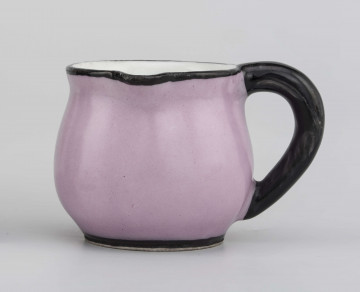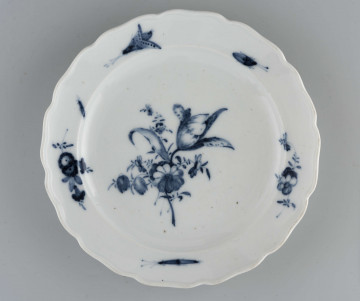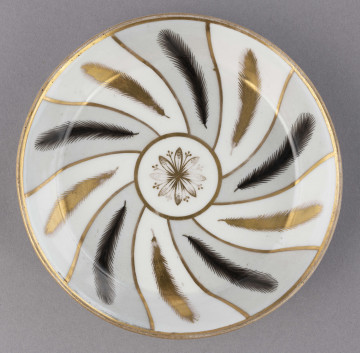
Creamer jug
1825 — 1835
National Museum in Lublin
Part of the collection: English stoneware – Wedgwood
In the second half of the 18th century, the Wedgwood pottery became extremely popular and an indispensable element of interior decoration in the houses of the English nobility.
In 1766, Josiah Wedgwood, the factory owner, was awarded the title of Her Majesty's Potter for making "a complete set of tea pots", i.e. a service for Queen Charlotte. He was a great inventor and creator of new varieties of pottery. Pottery owes to him such materials as fine faience, basalt or jasper stoneware. The variety of ceramics was the result of experiments conducted between 1768 and 1777 by Josiah Wedgwood, a skilled potter and prominent entrepreneur.
Stoneware and fine faience were used to make tableware and decorative objects, vases or busts, which were stylistically reminiscent of antiquity, in keeping with the taste of the Classical period.
In his "Book of Experiments" Wedgwood recorded: "Our black blackware: 80 parts sifted fine clay (Hydes), 80 parts Carr [ed. - iron oxide suspension] (Ohre) ground and fired, 9 parts manganese". All these components of the ceramic mass, after forming vessels from it, drying and firing, gave the finished product in the form of stoneware resembling basalt rock. After 1773, black stoneware became common.
The most popular were "basalt" tea services, but those for coffee were also popular. A small coffee cup, made of basalt stoneware, decorated only with silver borders in Etruscan style, can be found in the collection of the National Museum in Lublin. Its austere, simple and geometric form appealed to the refined consumer’s taste. Wedgwood wrote as follows about his own basalt stoneware: "Black is sure and will last forever". This kind of minimalist design is fashionable today, and black ceramics, both decorative and utilitarian, are not losing their popularity.
Magdalena Norkowska
Author / creator
Dimensions
cały obiekt: height: 6 cm, width: 11,8 cm, diameter: 6 cm
Object type
dish
Technique
ceramic technique
Material
basalt stoneware
Creation time / dating
Creation / finding place
Owner
The National Museum in Lublin
Identification number
Location / status

1825 — 1835
National Museum in Lublin

1763 — 1774
National Museum in Lublin

1807
National Museum in Lublin
DISCOVER this TOPIC
Museum of King Jan III's Palace at Wilanów
DISCOVER this PATH
Educational path